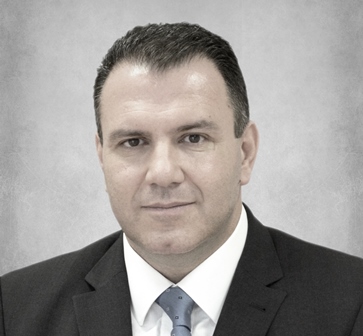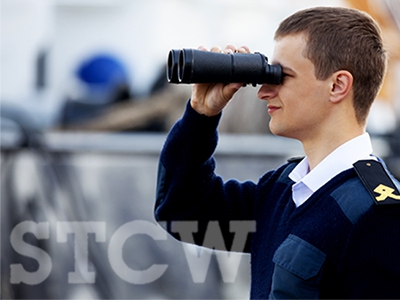As you are well aware of IMO has amended the “fitness for duty – hours of rest” requirements to provide watchkeeping officers aboard ships with sufficient rest periods at the Diplomatic Conference to adopt amendments to the STCW Convention, (successfully completed in Manila on 25 June 2010 ).
Under the Manila Amendments to the STCW Convention, in full implementations since 1.1.2012 all persons who are assigned duty as officer in charge of a watch or as a rating forming part of a watch and those whose duties involve designated safety, prevention of pollution and security duties (including Masters and catering staff NOT affected by previous regulation referring ONLY to those with watch duties) shall be provided with a rest period of not less than:
1.a minimum of 10 hours of rest in any 24-hour period; and
2.77 hours in any 7-day period.
Minimum restrictions include that the Hours of rest:
May be divided into no more than two periods, one of which shall be at least 6 hours in length, and the intervals between consecutive periods of rest shall not exceed 14 hours.
Schedule need not be maintained in the case of an emergency or in other overriding operational conditions. Musters, fire-fighting and lifeboat drills, and drills prescribed by national laws and regulations and by international instruments, shall be conducted in a manner that minimizes the disturbance of rest periods and does not induce fatigue.
An interesting and most useful bit in the new regulation is that it provides for the MASTER’S OVERRIDING AUTHORITY (A-VIII/1, para 8) stating that ” Nothing shall be deemed to impair the right of the master of a ship to require a seafarer to perform any hours of work necessary for the immediate safety of the ship, persons on board or cargo, or for the purpose of giving assistance to other ships or persons in distress at sea. Accordingly, the master may suspend the schedule of hours of rest and require a seafarer to perform any hours of work necessary until the normal situation has been restored. As soon as practicable after the normal situation has been restored, the master shall ensure that any seafarers who have performed work in a scheduled rest period are provided with an adequate period of rest.”
Obviously when a Master is exercising such an authority a relevant entry should be made in the ship’s log book to avoid future implications on a possible inspection of rest hours.
The most controversial issue however in the new regulation is the exemptions provision (A-VIII/1, para 9), stating “Parties may allow exceptions” in two cases :
Case 1
Hours of rest may be minimised to 70 hours in any 7-day period, provided that exceptions from the weekly rest period shall not be allowed for more than two consecutive weeks. The intervals between two periods of exceptions on board shall not be less than twice the duration of the exception.
Case 2
Hours of rest may be split into no more than three periods, one of which shall be at least 6 hours in length and neither of the other two periods shall be less than one hour in length, provided that the intervals between consecutive periods of rest shall not exceed 14 hours and that the exceptions shall not extend beyond two 24-hour periods in any 7-day period.
Here some additional clarifications may be required by the IMO to be honest.
What does the “Parties may allow exceptions” means in real life ? In case IMO would like to provide an exception the text for the regulation should read “Exceptions may be allowed …”. Here the “parties may allow” shoud read “Flags may allow ..” indicating some form of written allowance through some sort of national legislation, a circular or something similar as indicated by STCW Part B-VIII/1 . The case may be more complicated in the CASE OF A Flag strictly requiring 77 hours of rest in any 7-day period allowing NO exemptions (e.g. Marshall Islands).
How is a vessel eligible to these exemptions? Normally an entry into official ship’s log should be enough to cover any sort of problem against a Port State Control examination.
How exactly is this going to work especially on the 77 or 70 hours in any 7-day period? Lets assume that a seafarer has a 10 hours of rest per day (this is an absolute minimum, it cannot be minimised further) for the last 7 days in the preceding 15 days . The Master makes an entry into log book for an exemption (70 days rest on any 7 day period) from day 8 to day 14 (a total of 7 days). The exemption will work fine up to the end period (on day 14). During this period a 70 hours rest on any 7 day period are being provided and this may be OK up to day 14. On day 15 however the rule fails and at that day the Seafarer has to comply with the 77 day on any 7 day period (days 7 to and including day 15) so on day 15 the seafarer has to take rest for 10+7 = 17 hours. Does this makes sense ? Not sure, unless you apply some sort of math trick!
The last interesting issue is on the STCW vs ILO MLC hours of rest and Hours of work issue. Many think that by keeping records for both makes things easier, especially on a PSC Examination. Lets see if this makes sense :
ILO MLC rules on record keeping that every seafarer hous of rest /work should comply with the rule:
(a) maximum hours of work shall not exceed:
(i) 14 hours in any 24-hour period; and
(ii) 72 hours in any seven-day period; or
(b) minimum hours of rest shall not be less than:
(i) ten hours in any 24-hour period; and
(ii) 77 hours in any seven-day period.
Lets see the arithmetic’s on a daily basis : Daily 24 hours minus MIN 10 hours of rest minus MAX 14 hours of work leaves a balance of ZERO (0) hours. This is OK
Now lets see the weekly figures : Weekly 7×24= 168 hours minus MIN 77 hours of rest minus MAX 72 hours of work leaves a balance of NINETEEN (19) hours. This is AMAZING !!!!
It may mean in the case that you are recording hours of work ONLY that you are providing the crew with a period of rest of 96 hours (7×24= 168 – 72 = 96 hours !) Do you think this is true in many cases on an ocean going vessel which is for sure undermanned even in the case of 20-25 persons crew?
The obvious result from the above is that in case you need to fully comply with BOTH STCW and MLC plus minimising the liability of false record keeping you need to keep records of hours of rest ONLY !
STCW Regulation needs advance maths especially with the new rules plus a background check that any crew rest hours software used is tuned with the above requirements.
So what you need to ask is : Have you done your math lesson ?
By Apostolos Belokas, Managing Editor, SAFETY4SEA
About Apostolos Belokas
 Apostolos is a Maritime Safety, Quality & Environmental Expert, Consultant, Trainer and Project Manager with more than a 20-year background in shipping as Technical, Marine, Safety & Training Superintendent and Consultant. He entered the industry back in early 90’s as Engineering Superintendent with a leading ship manager operating a mixed fleet of bulk and oil/chemical tankers. He then shifted to regulatory compliance and QHSE as superintendent and later as a Consultant and Trainer. Apostolos has successfully completed a wide range of QHSE projects including 250+ management system projects (ISM/ISO 9001-14001-18001/TMSA/MLC), 500 vessel and office audits to various standards and he has trained more than 8,000 people in a wide variety of QHSE subjects. He has also presented and chaired to more than 40 conferences. He holds Mechanical Engineering Bachelor and Master’s specialising in Energy & Environment and Master’s Degree in Maritime Business and Business Administration (MBA), all of them awarded with distinction. Apostolos is the Managing Director of SQE MARINE, SQE ACADEMY and Managing Editor of SAFETY4SEA.
Apostolos is a Maritime Safety, Quality & Environmental Expert, Consultant, Trainer and Project Manager with more than a 20-year background in shipping as Technical, Marine, Safety & Training Superintendent and Consultant. He entered the industry back in early 90’s as Engineering Superintendent with a leading ship manager operating a mixed fleet of bulk and oil/chemical tankers. He then shifted to regulatory compliance and QHSE as superintendent and later as a Consultant and Trainer. Apostolos has successfully completed a wide range of QHSE projects including 250+ management system projects (ISM/ISO 9001-14001-18001/TMSA/MLC), 500 vessel and office audits to various standards and he has trained more than 8,000 people in a wide variety of QHSE subjects. He has also presented and chaired to more than 40 conferences. He holds Mechanical Engineering Bachelor and Master’s specialising in Energy & Environment and Master’s Degree in Maritime Business and Business Administration (MBA), all of them awarded with distinction. Apostolos is the Managing Director of SQE MARINE, SQE ACADEMY and Managing Editor of SAFETY4SEA.
































































In our rest time sheet do we record all drills. Date and time it take to complete the drills